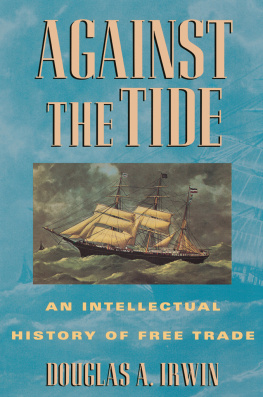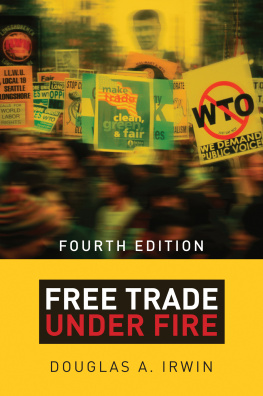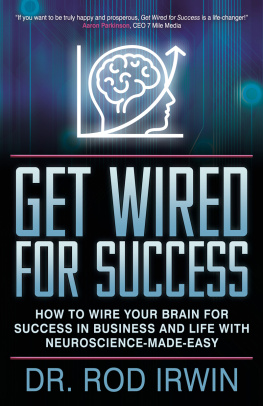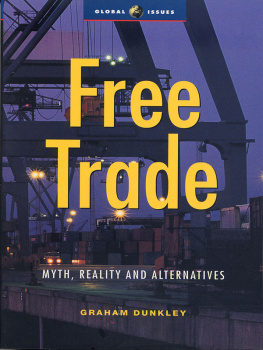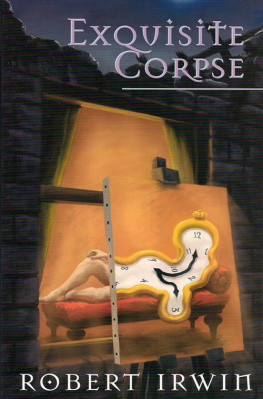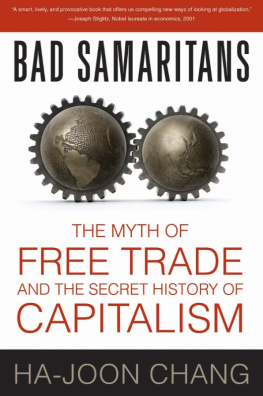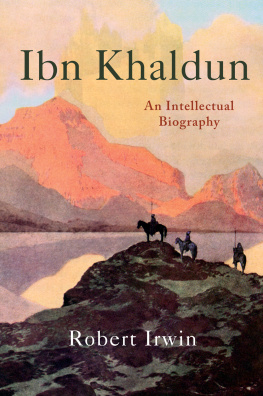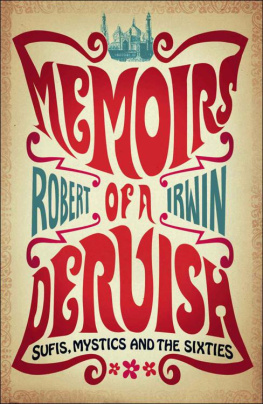Against the Tide

Against the Tide
AN INTELLECTUAL HISTORY OF
FREE TRADE
Douglas A. Irwin
PRINCETON UNIVERSITY PRESS
PRINCETON, NEW JERSEY
Copyright 1996 by Princeton University Press
Published by Princeton University Press, 41 William Street,
Princeton, New Jersey 08540
In the United Kingdom: Princeton University Press,
Chichester, West Sussex
All Rights Reserved
Library of Congress Cataloging-in-Publication Data
Irwin, Douglas A., 1962
Against the tide : an intellectual history of
free trade / Douglas A. Irwin.
p. cm.
Includes bibliographical references and index.
ISBN 0-691-01138-9 (alk. paper)
1. Free trade. I. Title.
HF1713.I78 1996
382.71dc20 95-25447 CIP
eISBN: 978-0-691-21301-9
R0
For my parents

ILLUSTRATIONS

Following Page
ACKNOWLEDGMENTS

ECONOMISTS and other intellectuals have debated for centuries the merits of free trade as an economic policy. The purpose of this book is to provide a history of the free trade doctrine, first tracing the idea up to Adam Smith and the classical economists, and then examining the leading controversies about theoretical objections to free trade since that time. I have been guided by George Stiglers plea for the history of economic thought to concentrate more on ideas and concepts than on individuals and personalities, as well as by a desire to write a book that is both relatively short (considering the tremendous time span covered herein) and relatively accessible to non-economists (despite the sole focus on theoretical considerations in the second half).
In this effort I have been aided by numerous friends and colleagues, and I am pleased to record my appreciation to them. I am indebted to Jagdish Bhagwati, not only for his comments on part of this manuscript, but for several years of encouragement and discussion about the subject matter of this book. John Chipman provided generous assistance in the form of several careful readings of manuscript drafts. I also wish to thank others who graciously took the time to comment upon various sections of the book: Max Corden, Donald Dewey, Barry Eichengreen, Ronald Findlay, Gene Grossman, Adam Klug, Anne Krueger, and Arvind Panagariya. Their advice is greatly appreciated. Claire Friedland also gets my thanks for helping track down prints and photographs of various economists.
I gratefully acknowledge the financial support of the Lynde and Harry Bradley Foundation through a grant to the Center for the Study of the Economy and the State (with a tip of the hat to its director, Sam Peltzman). Financial support has also been provided by the University of Chicagos Graduate School of Business. Among other things, this funding enabled me to partake of Herbert Somerton Foxwells priceless bequest to subsequent generations of scholars, the Goldsmithss Library of Economic Literature at the University of London.
Finally, I thank my wife Marjorie for her exemplary patience during the long gestation of this book and my daughter Ellen for not accidentally deleting any of my files in the search for computer games, and my daughter Katie for being a welcome addition as this book was being completed.
Against the Tide

INTRODUCTION
... the doctrine of free trade, however widely
rejected in the world of politics,
holds its own in the sphere of the intellect.
Frank Taussig (1905, 65)
THE PROPOSITION that freedom of [international] trade is on the whole economically more beneficial than protection, Harry Johnson (1977, 187) once wrote, is one of the most fundamental propositions economic theory has to offer for the guidance of economic policy. This proposition has survived repeated scrutiny from economists ever since Adam Smith made his celebrated case for free trade in the Wealth of Nations and continues to receive overwhelming support from professional economists today. The aim of this book is to describe how free trade came to occupy such a commanding position in economics and how free trade has maintained its intellectual strength as a doctrine despite the numerous arguments that have arisen against it over the past two centuries.
To address these distinct but related themes, this book is divided into two parts. The first discusses the reasons for the widespread presumption in economic thought prior to Adam Smith that an appropriate use of import tariffs and other government trade restrictions was likely to constitute a better economic policy than free trade. Such a view reached an apex in the mercantilist literature of the seventeenth century. The general presumption in favor of trade restrictions was gradually tempered by criticisms from within the mercantilist camp, as well as by a quite different form of reasoning from moral philosophers and others in favor of economic freedom. Eventually, the presumption was undermined by the more theoretical analyses of Adam Smith and the classical economists. Smith and the classicals firmly established among economic thinkers the proposition that free trade is superior to import protection in producing a greater amount of aggregate economic wealth. From this point on, the burden of proof in economic debates has been with those advocating restrictions on trade to demonstrate how such policies would contribute to a countrys economic wealth.
Defeated as a general theory, John Stuart Mill ([1848] 1909, 920) once observed, the protectionist doctrine finds support in some particular casesor, perhaps more accurately, seeks to find support in some particular cases. The books second part examines how the economic analysis behind the case for free trade has remained compelling or has been compromised by the various criticisms and counterarguments that have arisen since the time of Adam Smith. With uncanny regularity, a major theoretical argument for protection surfaces every few decades and sparks a controversy among economists about the strengths and weaknesses of the case for free trade. The infant industry argument for protection has achieved the widest popular recognition, for example, but many other cases exist, most recently the theory of strategic trade policy in the 1980s.
Although each and every theoretical claim made against free trade is not addressed, the book concentrates on what I believe to have been the most important and contentious debates over the economic merits of free trade. After describing the economic arguments against free trade and for protection, the ensuing debate over the validity and generality of these theoretical cases among their proponents and those defending the free trade doctrine is examined. I conclude by assessing the extent to which the theoretical argument has been accepted as a legitimate and important qualification to the case for free trade, dismissed as a

